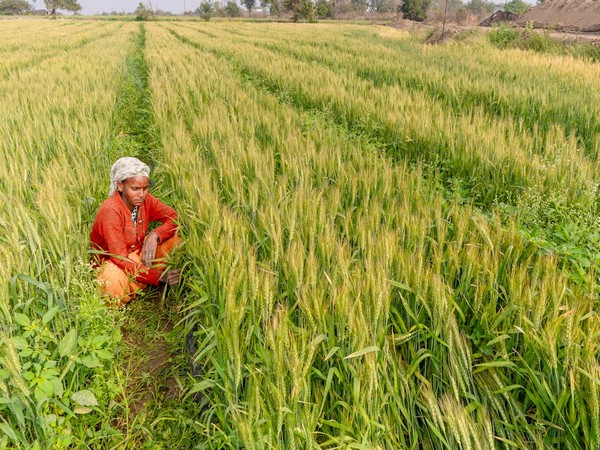Union Cabinet Approves Rs 14,235 Crore for Transformative Agricultural Schemes
The Union Cabinet, led by PM Narendra Modi, has greenlit seven key agricultural schemes with a total outlay of Rs 14,235.30 crore. These initiatives aim to enhance sustainability, income, and climate resilience in agriculture. Key projects include the Digital Agriculture Mission and Crop Science for Food and Nutritional Security.

- Country:
- India
The Union Cabinet, chaired by Prime Minister Narendra Modi, has approved seven key schemes with a total financial outlay of Rs 14,235.30 crore. According to the Ministry of Agriculture and Farmers Welfare, these initiatives are tailored to meet various agricultural challenges, focusing on sustainability, income enhancement, and climate resilience.
At the forefront of the effort is the Digital Agriculture Mission, with an allocation of Rs 2,817 crore. This mission leverages cutting-edge technology to improve farmers' lives by building on Digital Public Infrastructure. Utilizing tools like artificial intelligence, big data, and geospatial technologies, the initiative aims to revolutionize agricultural practices.
Key components of the Digital Agriculture Mission include Agri Stack, a comprehensive digital repository of agricultural data. Additionally, the Farmers Registry and Village Land Maps Registry will create digital records of landholdings and farmers, while the Krishi Decision Support System will aid in crop monitoring and decision-making. The mission also seeks to enhance market connectivity by linking farmers directly with buyers, minimizing middleman influence.
Another major initiative is the Crop Science for Food and Nutritional Security, with an allocation of Rs 3,979 crore. Focused on ensuring food security and enhancing crop nutritional value by 2047, the scheme places emphasis on strengthening agricultural research and education, with a particular focus on genetic improvement and resource management for food, fodder, pulses, oilseeds, and commercial crops.
The initiative also aims to prepare farmers for climate change challenges, ensuring that India's agricultural sector remains resilient. To modernize agricultural education and research, the Cabinet has allocated Rs 2,291 crore for the Strengthening Agricultural Education, Management, and Social Sciences scheme. This aligns with the New Education Policy 2020 and seeks to equip the next generation of agricultural professionals with the skills needed to tackle contemporary challenges, incorporating advanced technologies like AI, Big Data, and remote sensing while promoting natural farming and climate resilience.
Recognizing livestock and dairy farming's role in enhancing farmers' incomes, the Cabinet has approved the Sustainable Livestock Health and Production scheme with a budget of Rs 1,702 crore. Covering a wide range of activities including animal health management, veterinary education, and dairy production, the initiative also focuses on genetic improvement of livestock breeds and promotion of efficient production practices.
The Sustainable Development of Horticulture scheme, with an outlay of Rs 1,129.30 crore, aims to increase farmers' income through diverse horticultural crop cultivation. This scheme supports tropical, sub-tropical, temperate, root, tuber, and bulbous crops, as well as commercial and medicinal plants. By promoting horticulture, the government aims to diversify income sources and boost productivity.
Moreover, the cabinet has earmarked Rs 1,202 crore for strengthening Krishi Vigyan Kendras (KVKs), which disseminate knowledge and best practices to farmers nationwide, improving productivity and income. Finally, the Natural Resource Management scheme, with a budget of Rs 1,115 crore, focuses on sustainable management of natural resources, essential for the long-term viability of agricultural practices and environmental protection.
(With inputs from agencies.)
ALSO READ
India-Based Organizations Win Big with APAC Sustainability Seed Fund 2.0 Grants
Union Cabinet Approves Rs 2,817 Crore Digital Agriculture Mission
India's Digital Agriculture Mission: Transforming Farming with Data
Cabinet Approves Digital Agriculture Mission with Rs. 2817 Crore Outlay
Cabinet approves Rs 2,817 cr digital agriculture mission: Union Minister Ashwini Vaishnaw.










